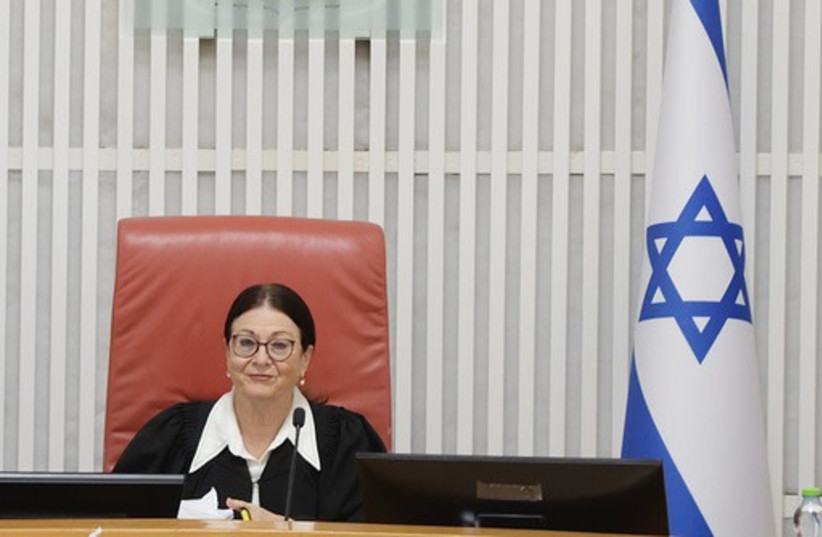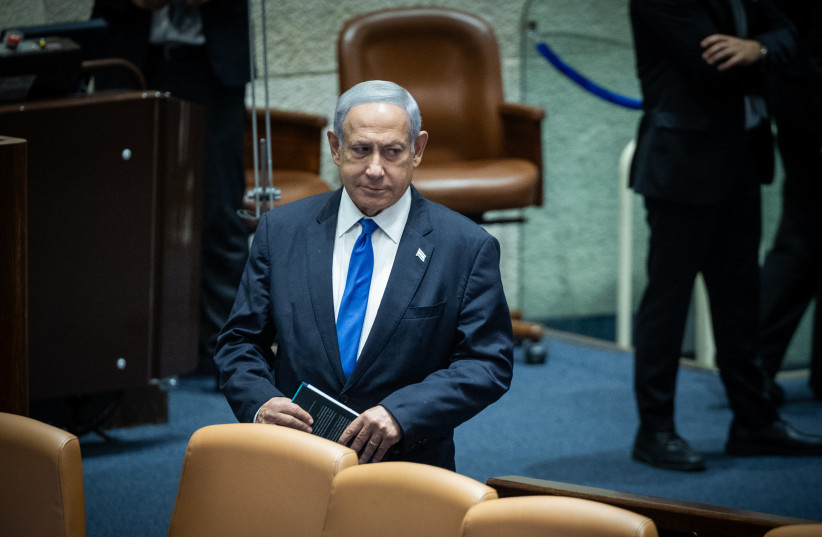by Michael Starr
The reasonableness standard law is the first and so far only judicial reform legislation to pass muster in the Knesset.
 |
The High Court of Justice is set to hear eight petitions against the reasonableness standard law on Tuesday, as part of the ongoing political and legal drama of 2023’s judicial reform.
The reasonableness standard is a common law doctrine that allows the courts to engage in judicial review of government administrative decisions deemed far beyond what a reasonable and responsible authority would undertake.
Critics of the doctrine have asserted that it is a highly subjective tool that allows for an activist court to interfere in policy and even government make-up, crossing the boundaries of different authorities and subverting the democratic will of the citizenry. Proponents of the standard contend that it is one of the few legal tools available to the court to check arbitrary and capricious government administrative decisions, and that it counters corruption by creating a requirement for officials to act reasonably.
Justice Minister Yariv Levin proposed the abolition of the reasonableness standard when he presented the judicial reform plan in January, but a bill was only introduced in June. The bill that passed into law on July 24 restricted the standard’s application to government, ministerial and prime ministerial administrative decisions, but did not protect civil servants.
The bill is the first and so far only judicial reform legislation to pass muster in the Knesset. As soon as it was passed into law, NGOs and activists fired off a series of High Court petitions calling for the law’s striking.


Petitions have challenged the law on several counts. They have argued that the Knesset abused its constituent authority by passing a quasi-constitutional basic law amendment that was politically motivated. The narrow content of the bill was challenged as unconstitutional and unsuitable to be woven into the fabric of constitutional norms that usually address the structures, roles, and powers of the state. The procedure of the bill has also been addressed by petitioners, who argue that its passing, by way of hastily using a committee bill, was unacceptable conduct – committee bills are usually used for technical matters, and don’t require a preliminary hearing and 45-day grace period like private bills.
Arguments were also made against the impact of the bill on the structure of the state. Petitioners have said that the restriction of reasonableness would not only foster corruption and deny citizens recourse for government excess and violations of rights, but that denying the court the ability to review government decisions upsets the rule of law and separation of powers. Petitioners are also asking the court to view the law as part of a broader government agenda, the judicial reform, and not just a single article. As the first part of the judicial reform, which petitioners argue would be passed gradually, the bill has far more lasting impacts on the judiciary and centralizes power into the executive and legislative branches.
Basic law could be struck for the first time
Besides the controversy around the judicial reform, the hearing is politically charged because the reasonableness law is an amendment to Basic Law: The Judiciary. The court has never before struck down a basic law or one of its amendments, having in the past preferred to interpret the law or rule on other issues.
In light of these legal and political sensitivities, in a historic first the High Court has assembled all 15 justices to preside over the hearing.
The authority of the court to strike down basic laws is hotly contested, and as the hearing date has neared, the opposition and coalition have staked out opposite embankments of the issue. The court itself has expressed in past hearings on basic laws that it has the authority to engage in judicial review of basic laws, but only in extreme situations, and those that endanger the basic values of the Jewish and democratic state.
If the court strikes down the law, and the government rejects the decision, it could later result in a constitutional crisis, in which bodies of the state are in an unclear legal relationship and status, and may continue to make decisions that other branches do not recognize. Law enforcement, prosecution, and budget cuts may be activated against what the opposing sides deem as illegal decisions.
The court has many options before it before striking down the legislation: It is just as likely that the petitions will rejected altogether, the court may return the legislation to the Knesset to fix gaps or wording issues, or it could interpret the new law, and rule that it does not impact the requirement to act reasonably.
The government could reject the petitions, but may choose to establish clearer lines for its own authority to strike down basic laws, in advance of future judicial reform laws. The court could also develop new doctrines, or expand old tools, to allow administrative judicial review by another name.
Outside political considerations could also impact the ruling in the form of an agreement between the opposition and the coalition that re-legislates the law or delays it’s application, thereby taking the decision out of the justice’s hands. With a judicial reform deal, the court may feel that not all avenues have been addressed before coming to the court, and may reject petitions until negotiations have matured.
As the Tuesday hearing nears, protests are expected from both sides of the debate, and the tension of the street will come to match the heated debates in the courtroom.
Michael Starr
Source: https://www.jpost.com/israel-news/politics-and-diplomacy/article-758427
No comments:
Post a Comment